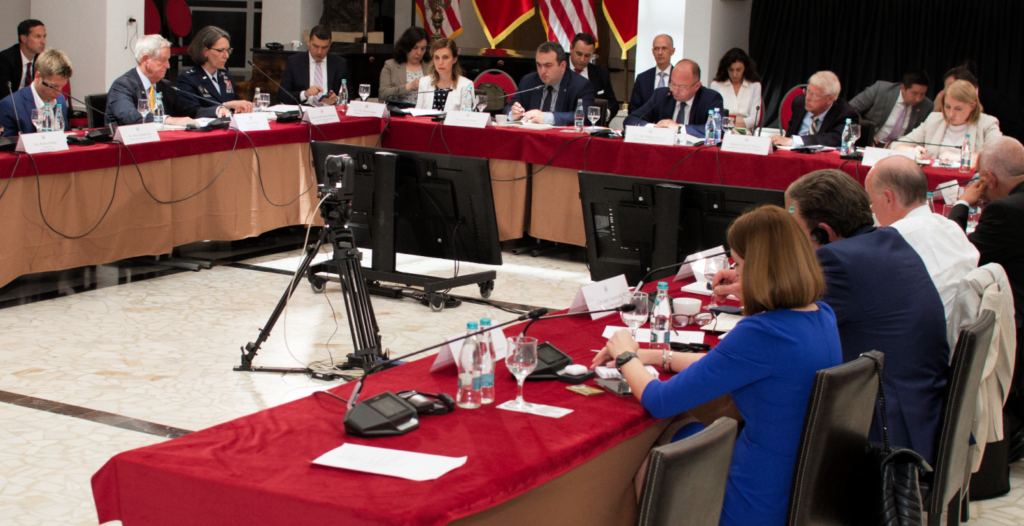Turkey

U.S. Helsinki Commissioners Welcome Release of Unjus...
Aug 01, 2024WASHINGTON—Today, U.S. Helsinki Commission Chairman Rep. Joe Wilson (SC-02), Co-Chairman Sen. Ben Cardin (MD), Ranking Member Rep. Steve Cohen (TN-09), and Ranking Member Sen. Roger Wicker (MS) celebrated the release […]
Helsinki Commission Alarmed By Reported Transport of...
Sep 02, 2022WASHINGTON—Following reports that the Sparta II, a Russian cargo ship, transported S-300 missile systems through the Turkish Straits, Helsinki Commission Chairman Sen. Ben Cardin (MD), Co-Chairman Rep. Steve Cohen (TN-09), Ranking […]
NATO Refocused, Europe Reinforced
Aug 10, 2022By Jessika Nebrat, Max Kampelman Fellow Following the escalation of Russia’s war against Ukraine, the North Atlantic Treaty Organization (NATO) is playing a role it has not filled in years. Forced to […]
Helsinki Commission Delegation Convenes Historic Bla...
Jul 14, 2022WASHINGTON—From June 29 – July 9, Helsinki Commission Ranking Member Sen. Roger Wicker (MS) led a bipartisan, bicameral congressional delegation to Romania, the United Kingdom, Finland, and Sweden to consult […]

Black Sea Security Summit
Jul 01, 2022A Roundtable Dialogue Hosted by the Commission on Security and Cooperation in Europe On the heels of the 2022 NATO Summit in Madrid, on July 1 the Commission on Security […]
Helsinki Commission to Convene Black Sea Security Su...
Jun 27, 2022WASHINGTON—On the heels of the 2022 NATO Summit in Madrid, on July 1 the Commission on Security and Cooperation in Europe, also known as the Helsinki Commission, will convene its […]
Helsinki Commission Recognizes Key Contributions fro...
Mar 08, 2022WASHINGTON—In light of Russia’s continued criminal war on the peaceful citizens of Ukraine, Helsinki Commission Chairman Sen. Ben Cardin (MD), Co-Chairman Rep. Steve Cohen (TN-09), Ranking Member Sen. Roger Wicker […]

Conflict of Interest?
Feb 16, 2022Turkey is at a crossroads. Even as the Turkish Government insists that it remains committed to its NATO partners and to future EU integration, its actions—both foreign and domestic—call those […]
Helsinki Commission Briefing to Examine Intersection...
Feb 10, 2022WASHINGTON—The Commission on Security and Cooperation in Europe, also known as the Helsinki Commission, today announced the following online briefing: CONFLICT OF INTEREST? Foreign Policy and Human Rights in Turkey […]
Chairman Cardin Calls for Release of Osman Kavala, W...
Dec 03, 2021WASHINGTON—Following the recent ruling of a Turkish court that will keep philanthropist Osman Kavala jailed until his trial begins in January 2022 and the subsequent decision by the Council of […]

